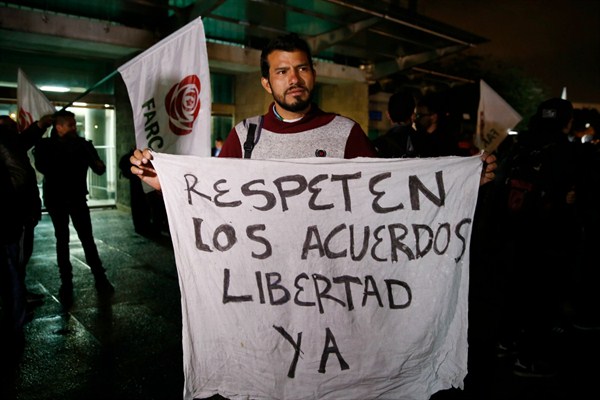Signs of strain are emerging over Colombia’s landmark 2016 peace accord that ended a 50-year war with the country’s largest guerrilla group, the Revolutionary Armed Forces of Colombia, or FARC. Key aspects of the agreement still haven’t been implemented, while its transitional justice system, arguably the most important element of the reconciliation process, suffers from mistrust and a lack of buy-in on both sides. In an interview with WPR, Mathew Charles, a journalist and academic in Colombia, discusses the impediments to peace and how to overcome them.
World Politics Review: What are the principal points of contention between the Colombian government and the former FARC rebels that are hampering the peace process?
Mathew Charles: Peace in Colombia faces many obstacles. There are ongoing problems with the reintegration of former FARC rebels, including a lack of employment opportunities and inadequate health-care provisions. There are also more than 200 ex-guerrillas still in prison who should have been released as part of the peace deal. On top of that, at least 70 ex-combatants have been killed since the accord was signed in 2016, and many of the former FARC rank-and-file simply feel unsafe.

